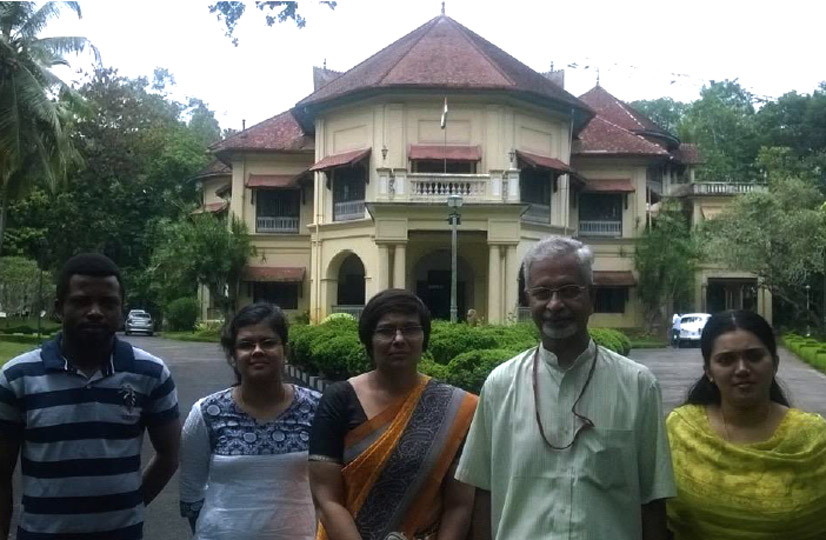
This is the description of normal physiological sleep by Charaka Samhita (The encyclopaedia on the Ayurveda by Sage Charaka) in 1000 BC that means “When the mind gets tired, when the senses get dulled and incapable, then man goes to sleep”. However, in this advanced era of continuous light and digital technologies, we have disrupted our normal sleep by working round the clock.
Sleep restriction, necessitated by modern lifestyle, is an emerging health concern for all of us as we are coming across several evidences on its adverse effects on our health almost in all age-groups. Sleep especially during pregnancy becomes essential as the early neural networks in developing foetus could be affected during this window. Maternal sleep deprivation, thus, is a potential threatening stress to the growing baby as there are recent reports of increased anxiety disorders and cognitive deficits in theoffspring. There are compelling evidences to suggest that the higher cognitive functions are particularly vulnerable to sleep loss not only during childhood and adult age but also during prenatal period.
According to the World Health Organization, 10-20% of children and adolescents worldwide suffer from developmental disorders (www.who.int/mental_health/maternal-children). The most common among them are anxiety disorders, attention deficit hyperactivity disorder and attachment disordersthat severely influence development, educational attainments and productive lives. However, the controlled studies which ascribe the cognitive deficits of the offspring to sleep deprivation during pregnancy, are limited.
We have documented the effects of sleep loss during 3rd trimester of pregnancy on emotional development and cognitive function of the newborn in animal model. The pups of the rapid eye movement sleep (REM sleep) -deprived dams had reduced ultrasonic vocalizations during developmentindicating impairment in emotional behavior.
In another study, the pregnant rats were deprived of total sleep for 5 h during third trimester. When the ultrasonic vocalizations of their pups were tested in isolation paradigm, it was observed that the neonates of sleep-deprived dams made higher vocalizations. The behaviour testing of weanlings during peri-adolescence in the elevated plus maze showed that these made increased entries into the open arms and higher mobility. Enhanced distress calling during early post nataldays and reduction in risk assessment in weanlings indicate a link between the two behaviours.
We also proposed that the ultrasonic vocalizations during early ontogeny could be used as an acoustic marker for an altered emotional development. We also evaluated maternal sleep-wakefulness and anxiety profile during pregnancy, nursing and post-weaning that would provide crucial guidelines in making critical assessment of post-natal factors for shaping the behaviour of offspring.
The management of insomnia and anxiety during pregnancy is always a challenge. In our laboratory, we are exploring for a safe hypnotic substitute that can be used during pregnancy.
The focus of our research laboratory is to study the role of sleep in developmental programming for cognition and neural dynamics in brain after sleep deprivation using animal models and simulation protocols in human. We evaluate the hypnotic potential of various herbal products mentioned in Ayurveda.
We are also looking into the mechanism for interaction of sleep and thermoregulation for identification of non-pharmacological interventions including Thermal Therapy and Yoga-Meditation for treating insomnia.
Training Opportunitiesat Sleep Disorders Research Lab, Sree Chitra Tirunal Institute for Medical Sciences and Technology (SCTIMST) Trivandrum, Kerala
The Sree Chitra Tirunal Institute for Medical Sciences and Technology (SCTIMST) is an Institute of National Importance under the Department of Science and Technology, Govt. of India with the status of University by an Act of Parliament in 1980.
Sleep Disorders Research Lab of SCTIMST provides research training in area pertaining to sleep. This involves preparation and implantation of electrodes (animal model) for sleep-wakefulness in free moving condition, acquisition and analysis of electrophysiological data using polysomnography (both wired and telemetric). There is facility for recording single units and multichannel field potentials in un-anesthetized state. We also have cognitive behaviour testing laboratory with video-tracking system.
Training is given to the interested postgraduates for their project work or those wish to pursue PhD program in the above mentioned area. The international students can also apply as our lab is a recognized laboratory for training and the Sree Chitra Tirunal Institute for Medical Sciences and Technology is a recognized Centre in India.
For project work, the candidate has to contact our laboratory for availability of space and the Deputy Registrar of the Institute. The details can also be viewed on the Institute website. (http://www.sctimst.ac.in/Academic%20and%20Research/Academic/Admissions/) The training can range from one week to 6 months.
News clipping on our research findings
http://epaper.telegraphindia.com/paper/4-0-26@01@2014-1001.html

Our Team members (from left to right): Patrick Deeh Defo Brice (PhD Scholar & Research Trainee from Cameroon), Ms Arathi R (PhD Scholar, CSIR Fellow), Dr Kamalesh K Gulia (Scientist In-charge), Dr V Mohan Kumar (Visiting Professor), Ms Aswathi BS (PhD Scholar, Inspire Fellow) in front of the Satelmond Palace of the Biomedical Technology Wing Campus of SCTIMST, Trivandrum.

